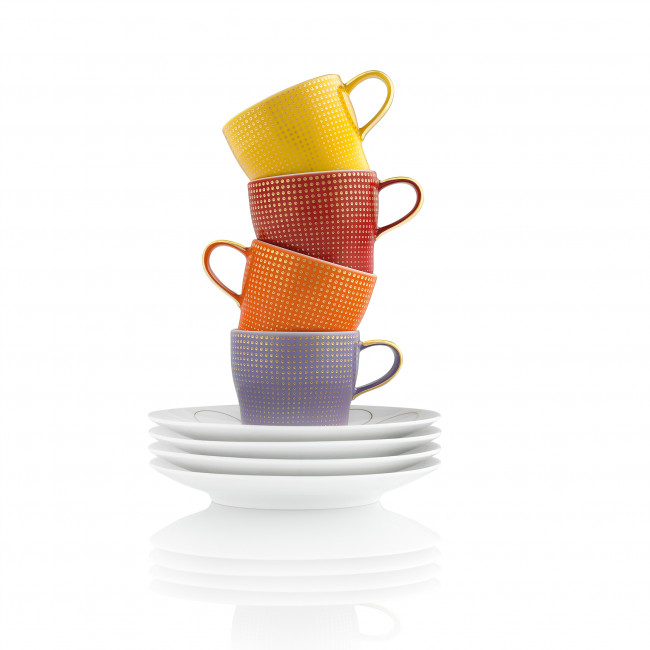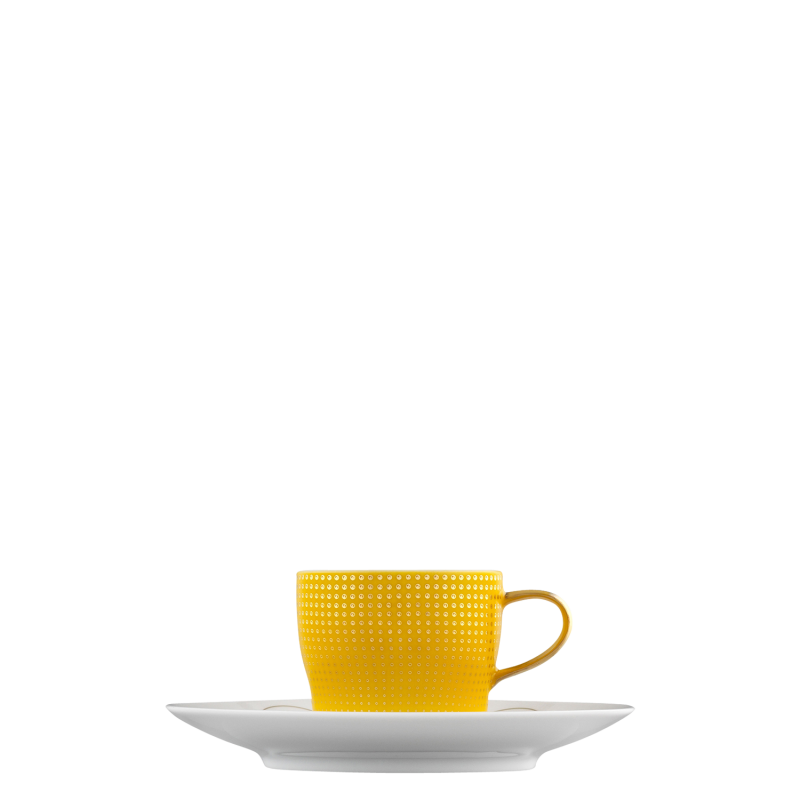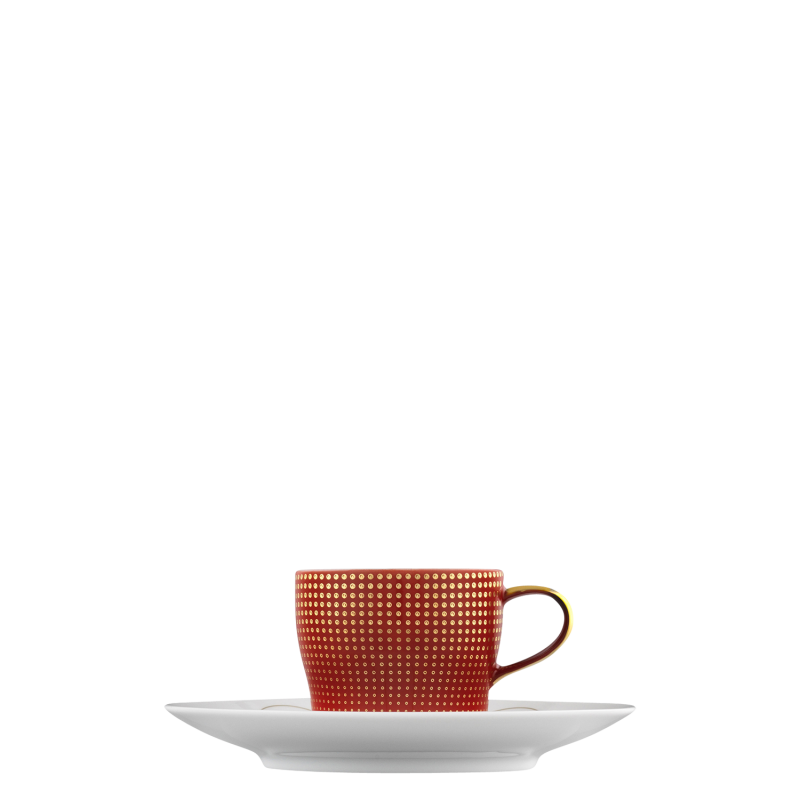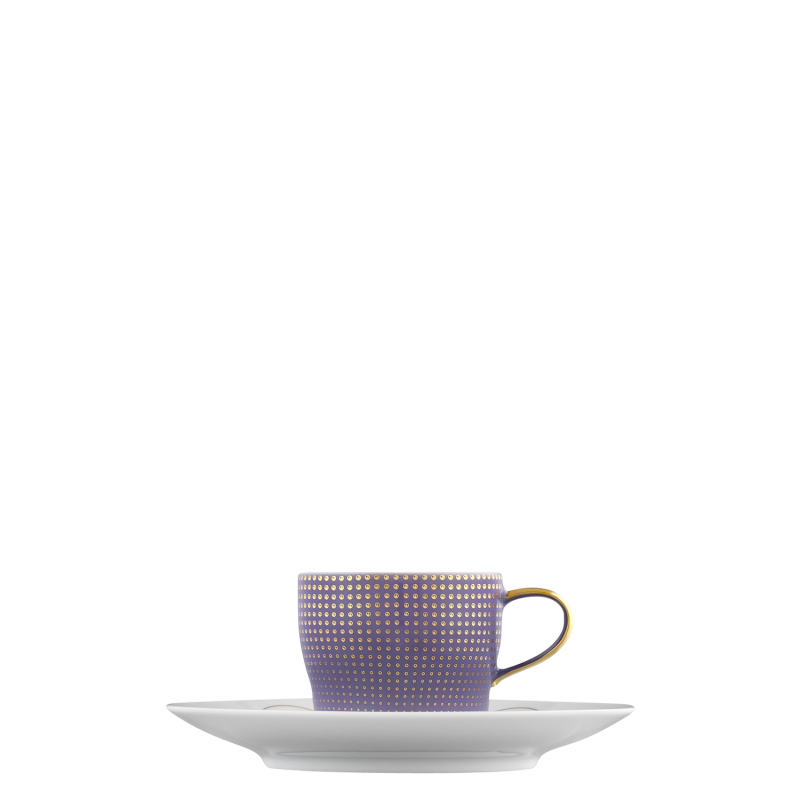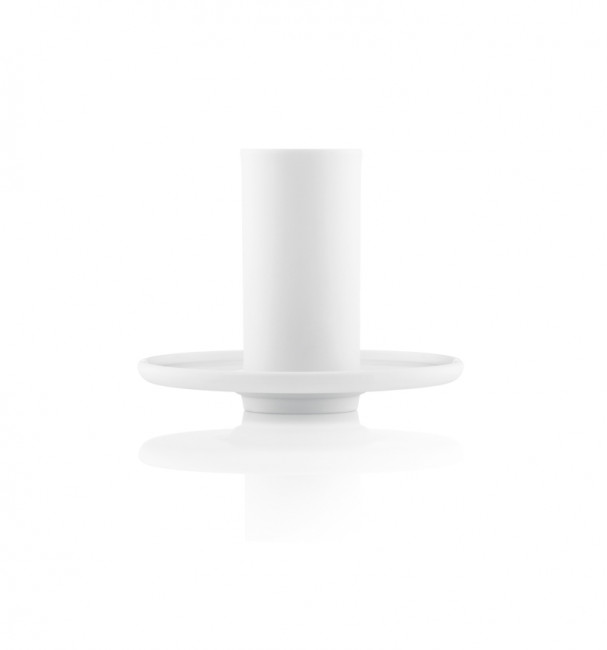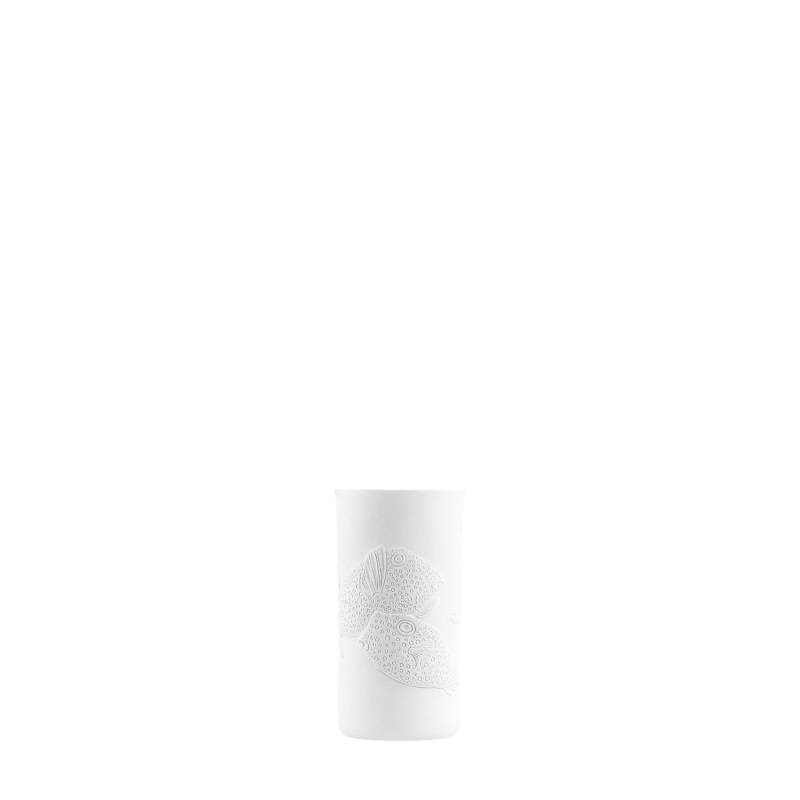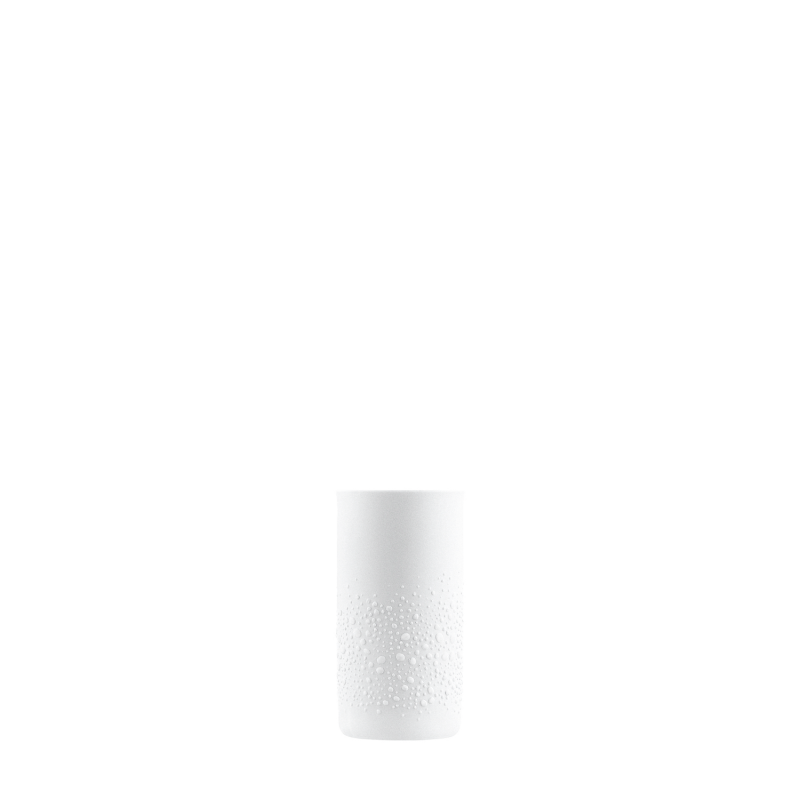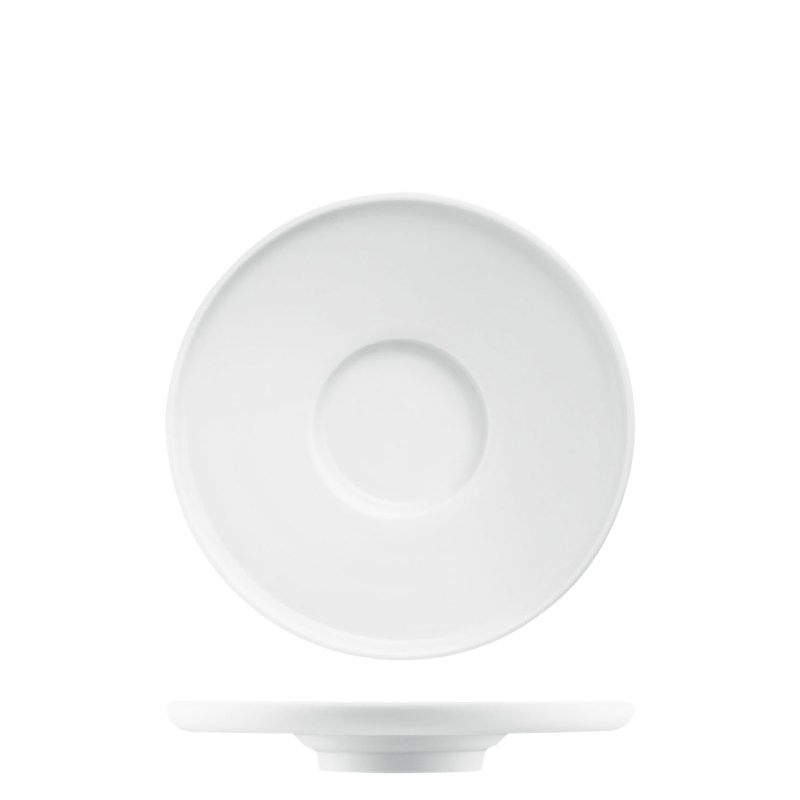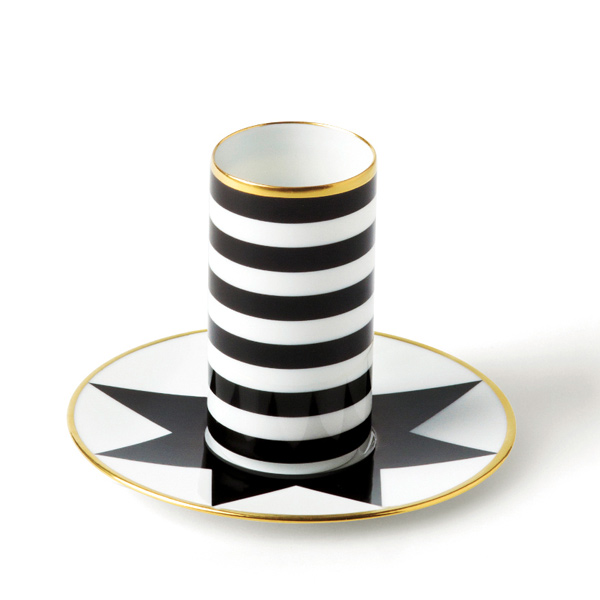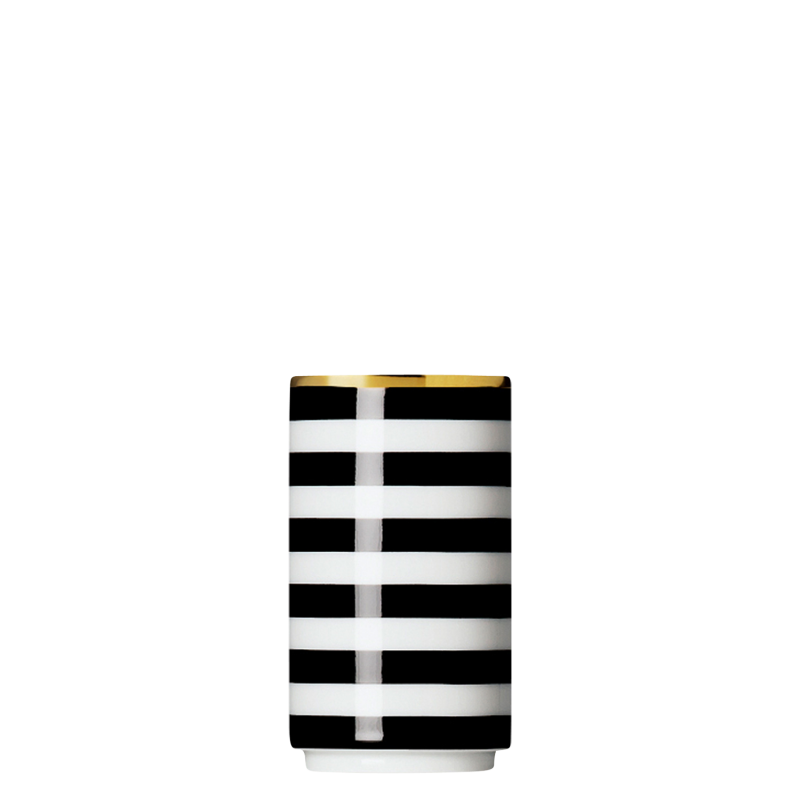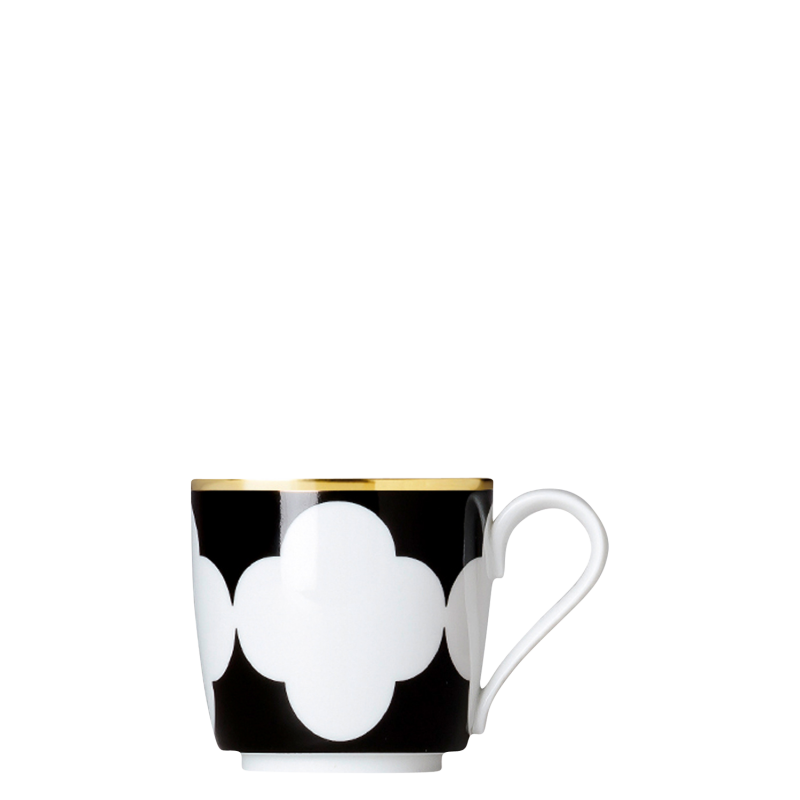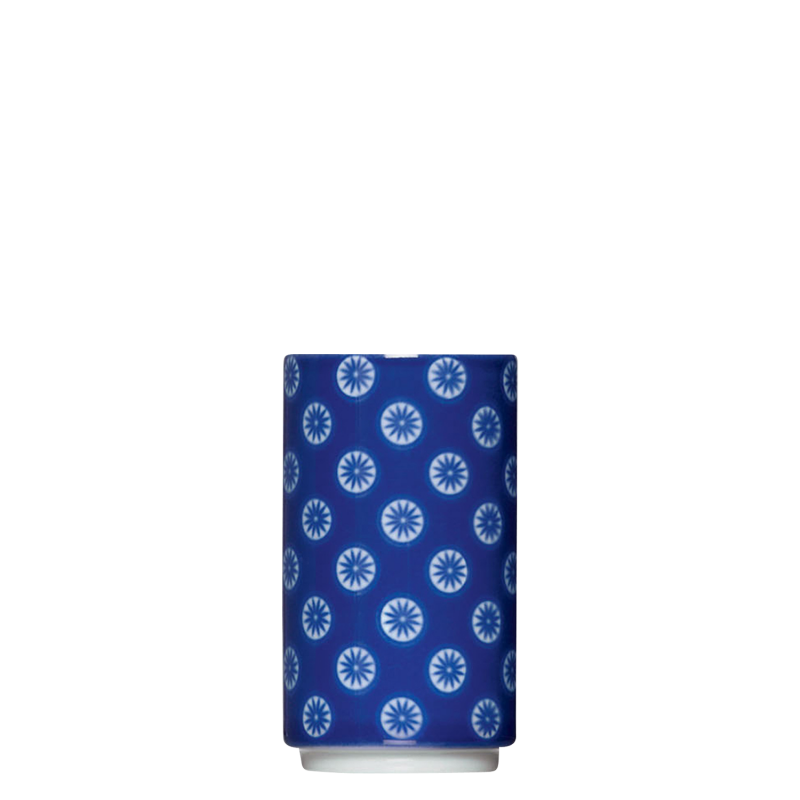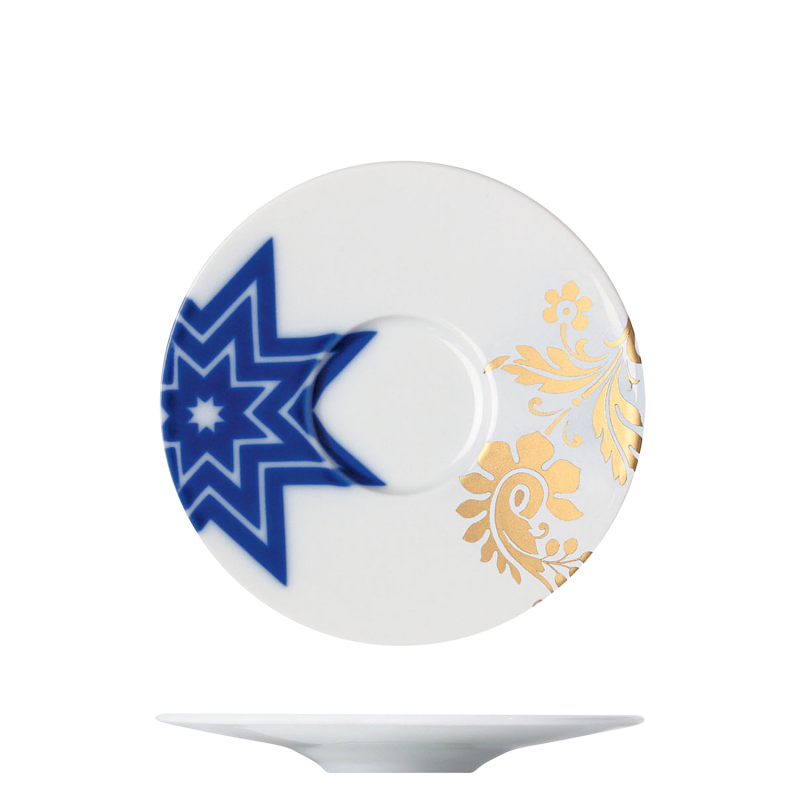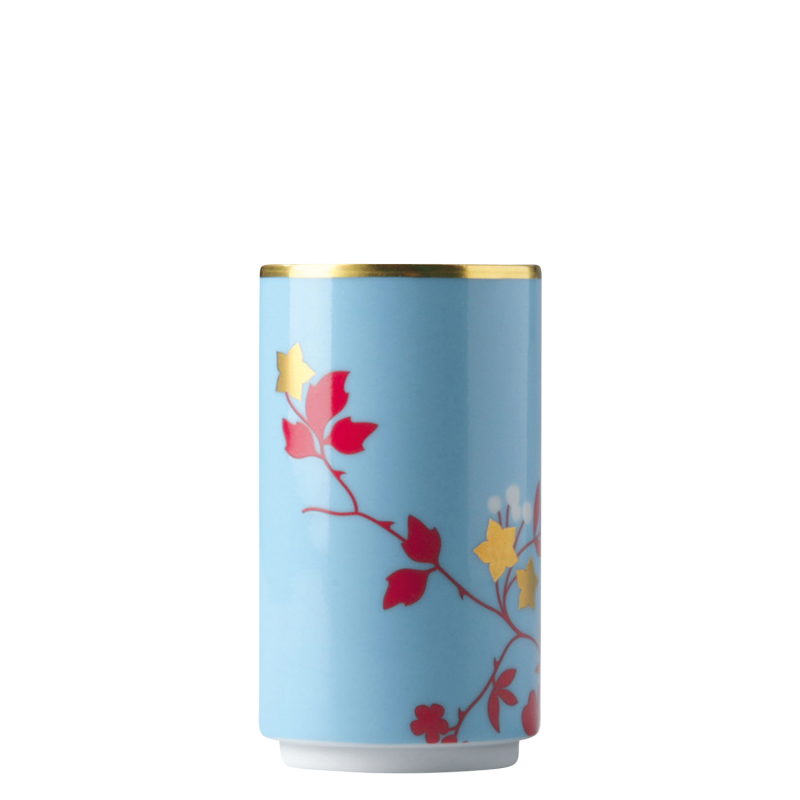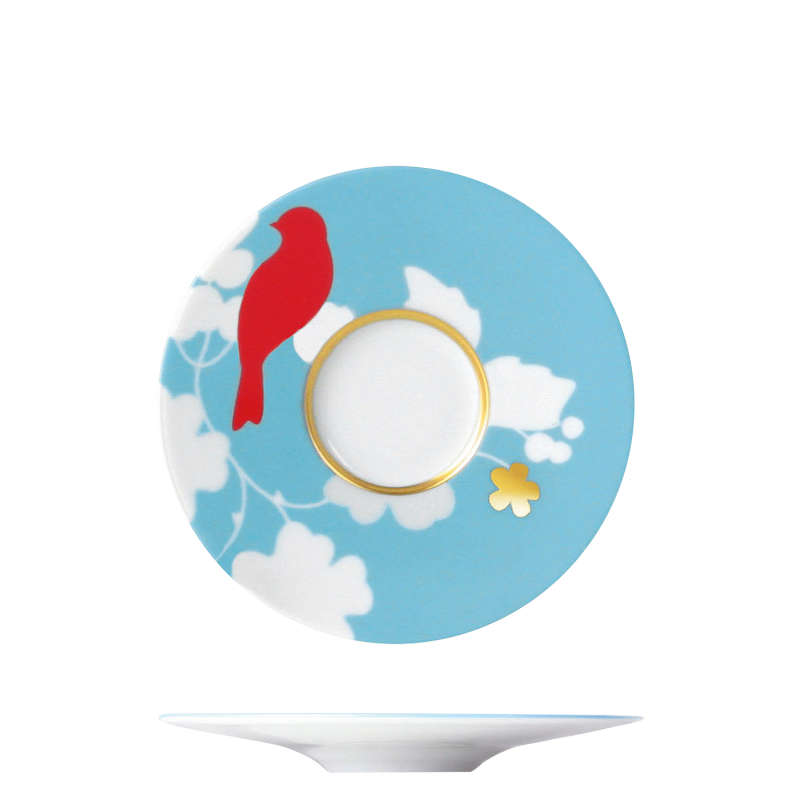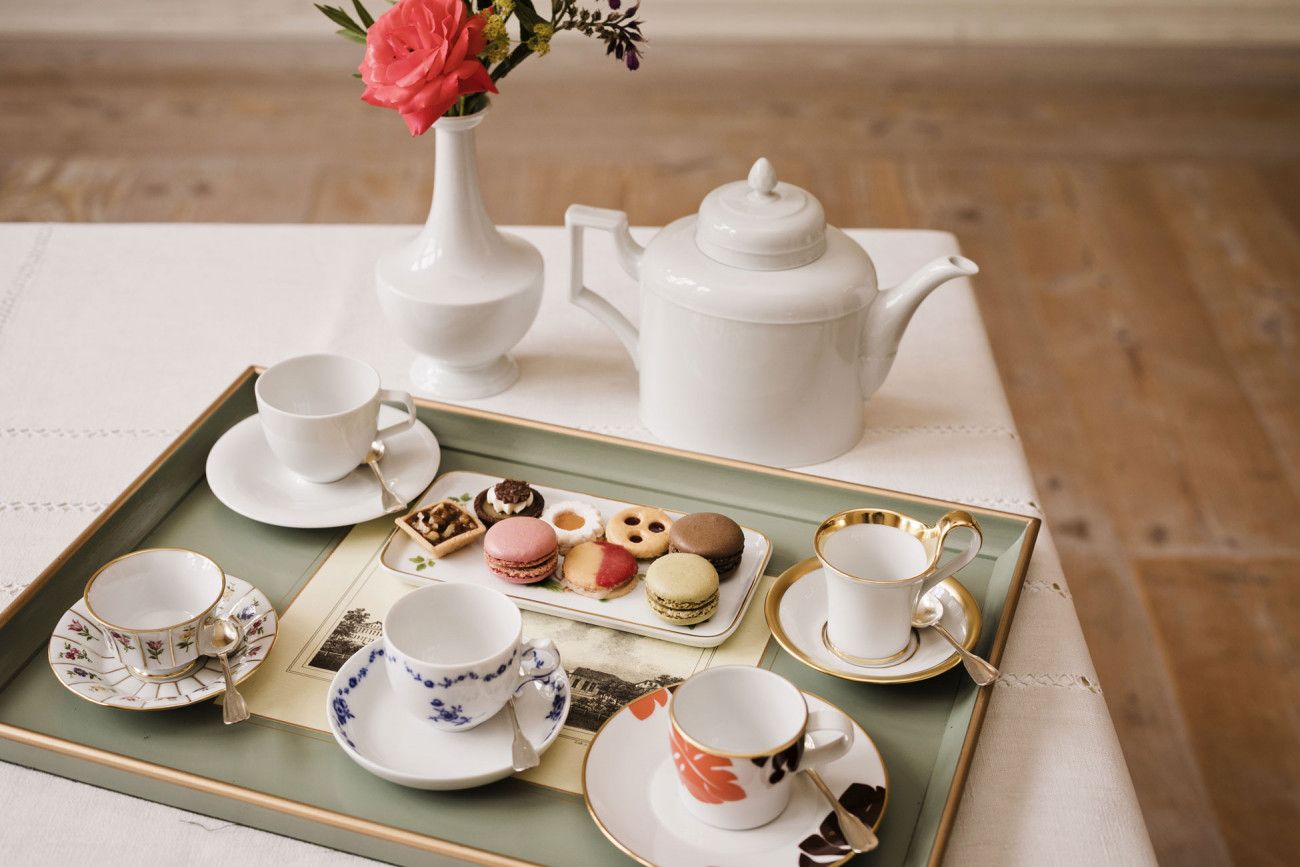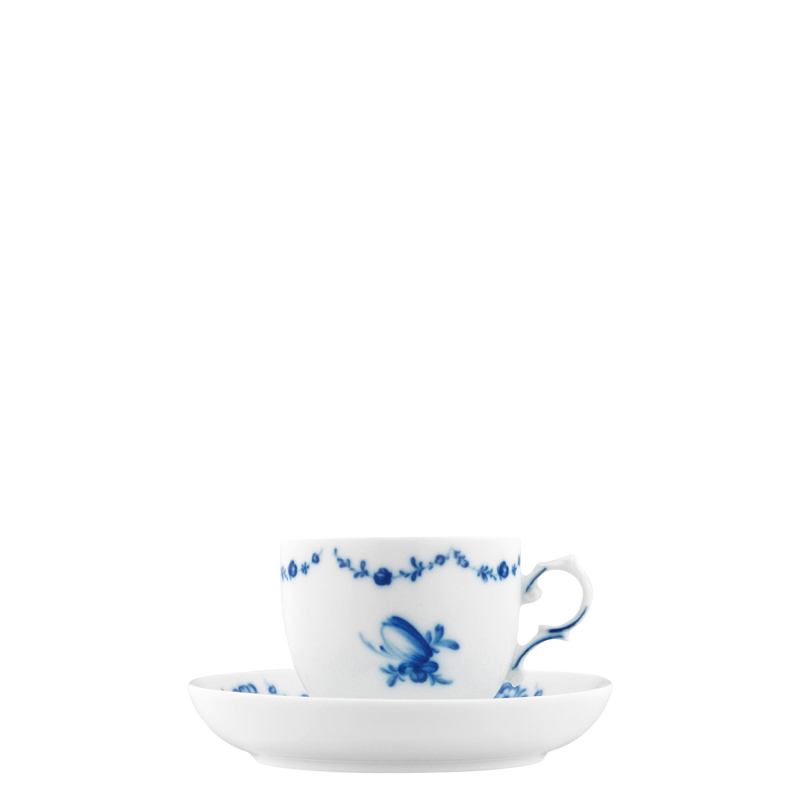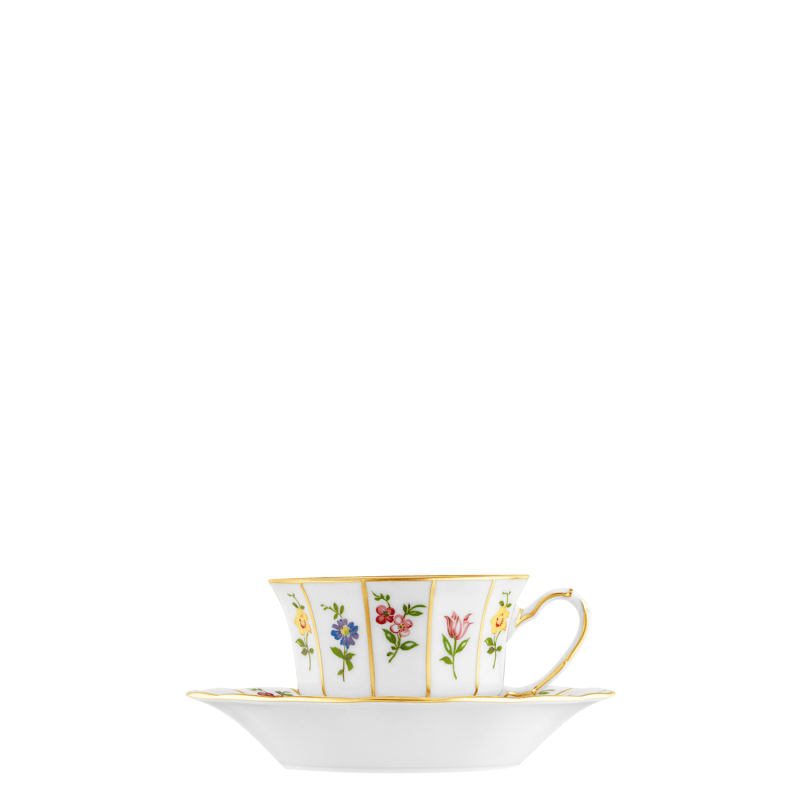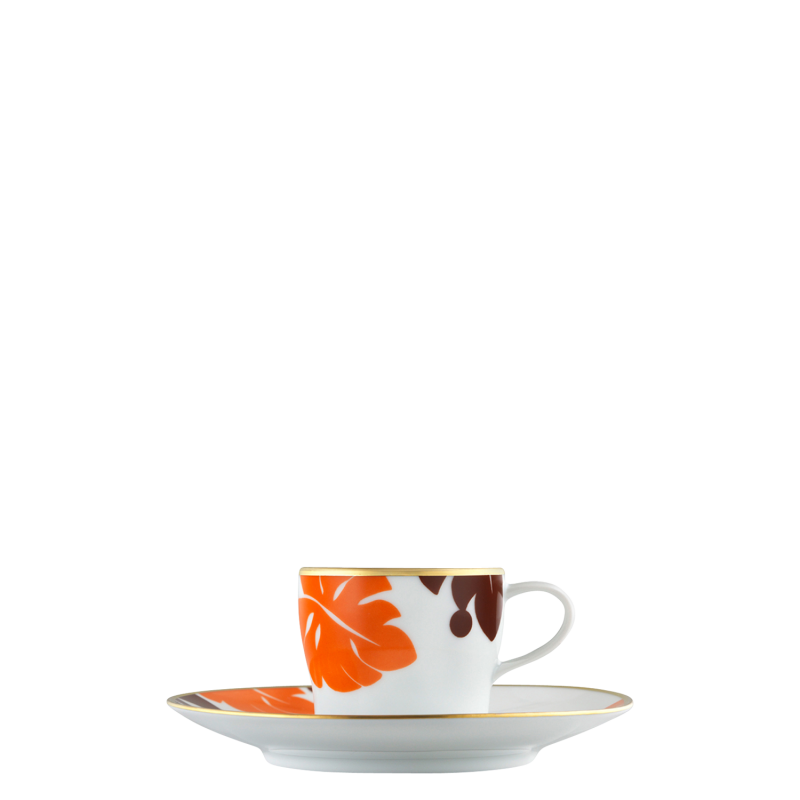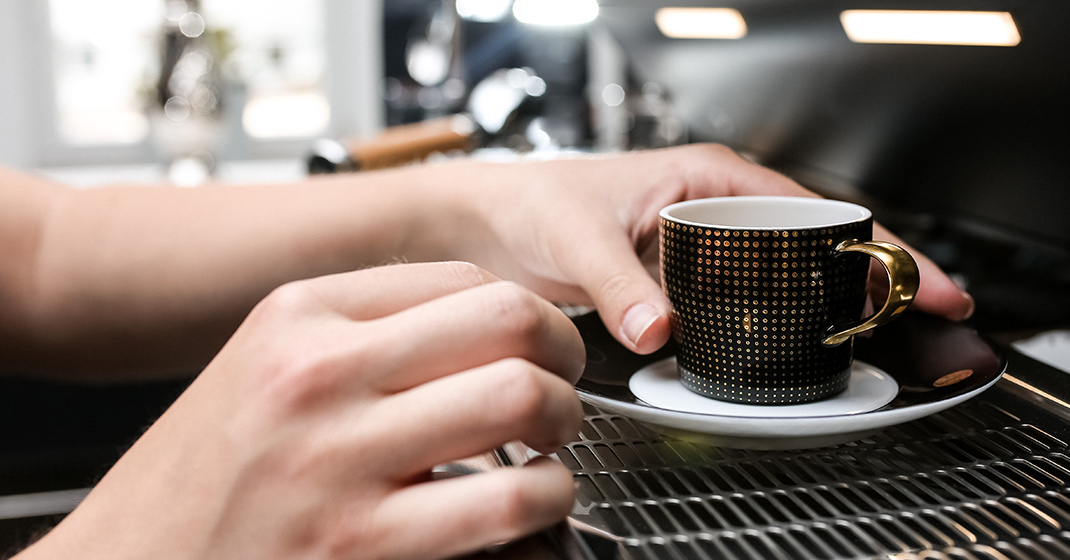
BLACK, HOT AND SWEET - THE ESPRESSO
Immerse yourself in the fascinating world of espresso and discover the sophistication of fine espresso cups
A COFFEE THAT IS FULL OF HOSPITALITY
Espresso – coffee that doesn’t take long to make? This belief is a widespread myth. In fact, the word “espresso” comes from the Italian “caffè espresso”, which refers to a coffee that is made at the express request of the guest, and has absolutely nothing to do with express delivery.
Quite the opposite: a good espresso requires calm and care in preparation, and with the fine crema – the delicate, golden-brown foam on top – is a veritable culinary masterpiece. The mini black coffee is served in special coffee cups that, when it comes to their claim to perfection, are clearly on the same level as the classic coffee beverage.
Find out all sorts of exciting things about the popular espresso here as well as your favourite espresso cup – whether classic or modern, with or without a handle, colourfully decorated or puristically white.
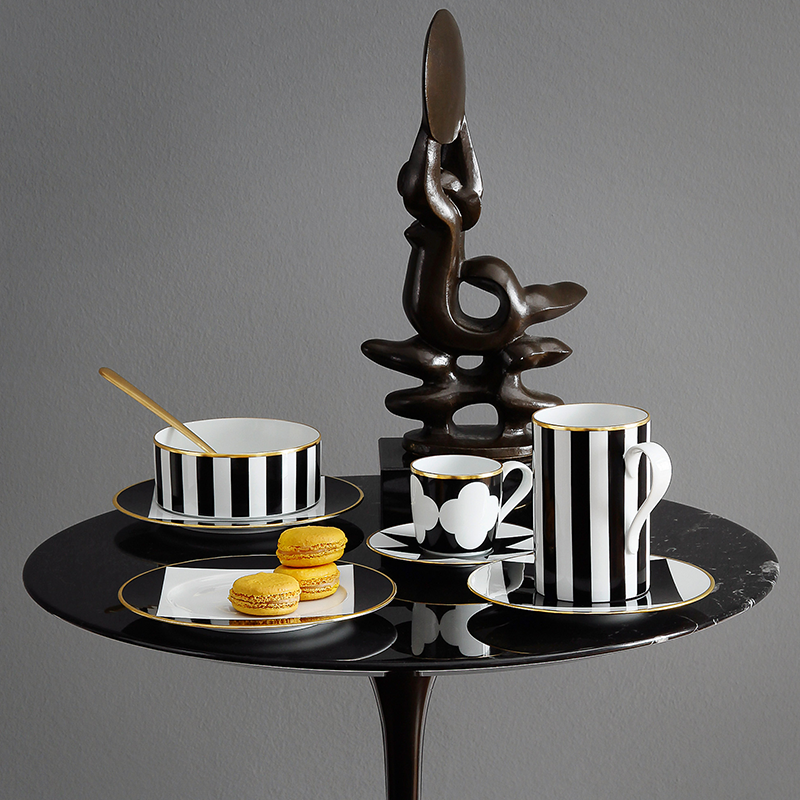
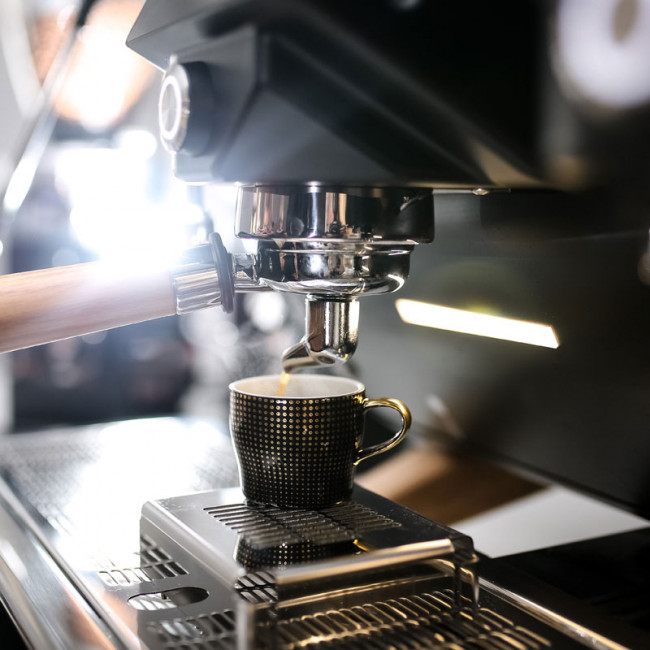
THE HIGH ART OF THE ESPRESSO
In theory, espresso is a method of making coffee in which water is forced under high pressure through very finely ground coffee beans. In practice, the making of the perfect espresso is almost a science of its own. It is the ideal interplay between freshly ground coffee beans, pressure and temperature that results in the aromatic espresso with crema.As a general rule: a basic espresso is made by forcing 40 ml of hot water at 86-90 °C through around 7 g of ground coffee at a pressure of 8 to 10 bar in 25 seconds. Sounds complicated? Fortunately, modern portafilter or automatic coffee machines – such as the exquisite coffee machines made by the Italian leather manufacturer GIOBAGNARA – do most of the work for you, leaving you with more time to choose your loveliest espresso cup.
More about the cooperation with GiobagnaraPORCELAIN ESPRESSO CUPS FOR PERFECT ENJOYMENT
There is a tremendous range of espresso cups in the most diverse materials. Time and again, trends are created from ceramic, glass and earthenware. But the timeless classics are porcelain espresso cups. No wonder, because the “white gold” of porcelain offers many advantages for the sophisticated little cup of coffee:
• High quality
• Good heat storage
• Long-lasting
• Easy to clean
• Insensitive to acids and alkalis
WHAT MAKES FÜRSTENBERG ESPRESSO CUPS SO SPECIAL
Made from high-quality manufactured porcelain, FÜRSTENBERG espresso cups add a timeless elegance to the coffee table – whether the forms and designs are created in collaboration with internationally renowned designers or in the company's own studio. The espresso cups all appeal for:
• The variety of shapes and designs
• Sophisticated details for the perfect enjoyment
• Matching saucers, milk jugs, sugar bowls or the complete service
• Dishwasher-safe finish
• Quality Made in Germany
HAND-MADE WITH A PASSION FOR DETAIL
Did you know that all the handles of the FÜRSTENBERG espresso cups are lovingly put by hand to the turned body of the cup? The technical term for this is to attach a handle.
Espresso cups tend to be thick-walled to keep the temperature better. One exception, and a particular touch of sophisticated craftsmanship, are the espresso cups in the TOUCHÉ series, which have an extra thin porcelain shard but also have an excellent insulating effect thanks to their double-walled design. A cup bottom with a rounded transition to the wall favours the development of the fine crema in the espresso cup.The elegant little porcelain cups are also polished by hand. This is the only way to ensure the espresso cups all have the perfect, smooth finish.
That's why at FÜRSTENBERG we still say that every cup passes through 100 hands. This care and passion for detail makes every espresso cup a product of genuine craftsmanship.
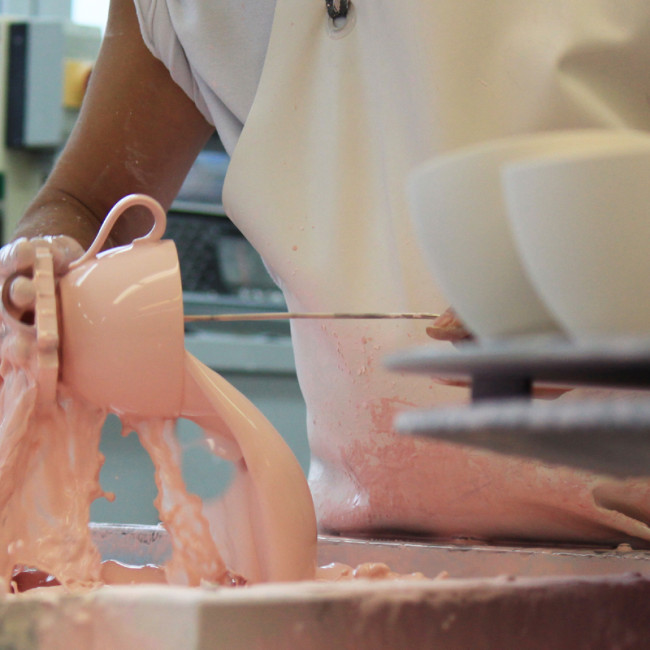
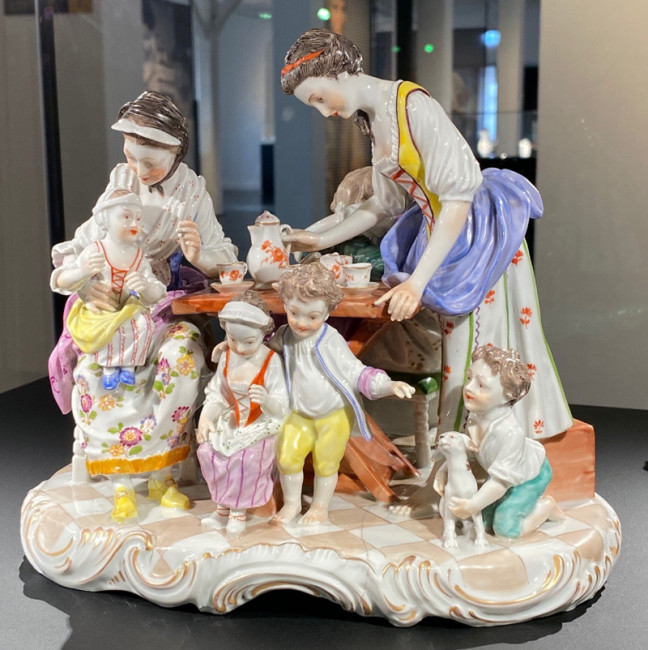
DIGRESSION: THE SMALLEST COFFEE SERVICE
Espresso cups are undeniably small, but FÜRSTENBERG's smallest ever coffee set can be seen in the middle of the table in the famous group of figures “The Coffee Party”, created in 1772 by the French sculptor Jean (or Jacques) Desoches. The coffee party consists of more than 80 pieces of porcelain, each one of which was individually made and the various items then combined by hand. This group is the most elaborate porcelain sculpture ever made in Fürstenberg, and can now be admired at the MUSEUM SCHLOSS FÜRSTENBERG.
More about the museum
